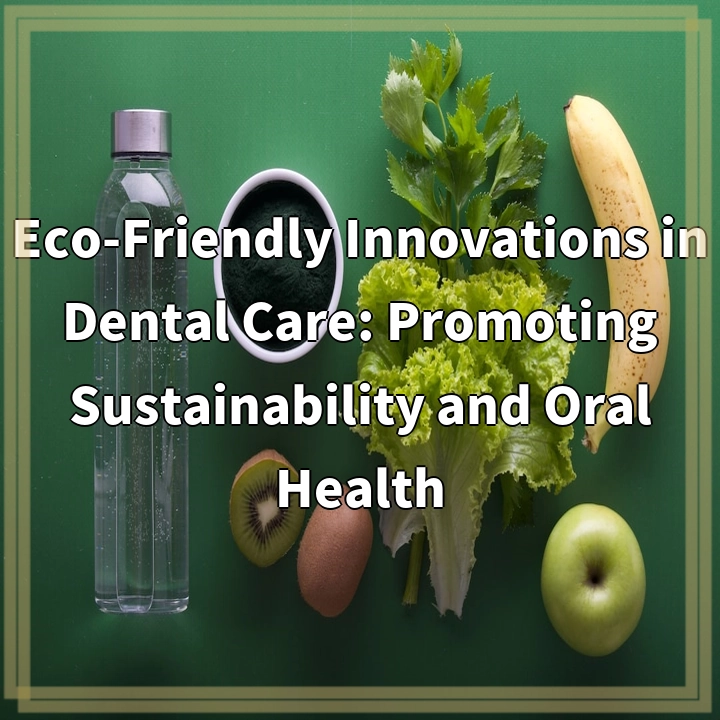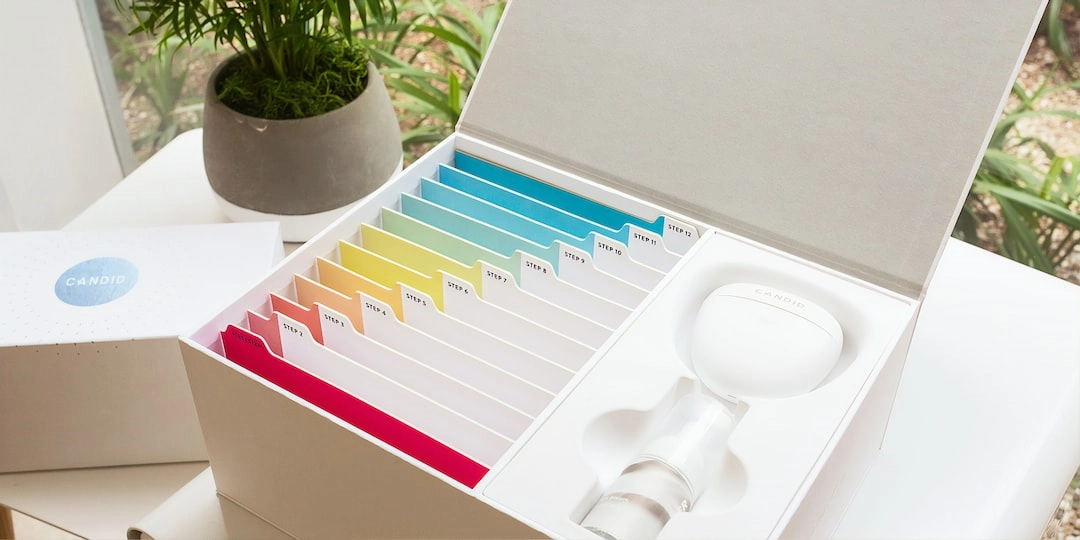
What it is:
Eco-Friendly Innovations in Dental Care: Promoting Sustainability and Oral Health
With the growing awareness of environmental issues, there is an increasing need for eco-friendly solutions in various industries, including healthcare. Dental care, in particular, is an area where innovative practices and technologies are emerging to promote both sustainability and oral health.
Real-World Problems:
Despite the importance of oral health, the dental industry faces several challenges in terms of sustainability and environmental impact. Here are some real-world problems associated with conventional dental care:
1. Plastic Waste:
The dental industry generates a significant amount of plastic waste each year. Single-use items such as gloves, masks, and packaging contribute to the accumulation of non-recyclable materials that end up in landfills or oceans, causing harm to the environment.
2. Energy and Water Consumption:
Traditional dental practices consume a substantial amount of energy and water resources. From powering dental equipment to sterilizing tools and maintaining clinical facilities, the energy and water footprints of conventional dental care can be considerable.
3. Chemical Pollution:
A range of chemicals, including disinfectants, anesthetics, and amalgam materials, are used in dental procedures. Improper disposal or disposal into regular waste streams can lead to chemical pollution, impacting water sources and aquatic life.
4. Inefficient Sterilization Processes:
Traditional sterilization methods used in dental practices can be energy-intensive and time-consuming. Inefficient processes may require excessive use of water and electricity, contributing to waste and carbon emissions.
5. Lack of Eco-Friendly Materials and Technologies:
The dental industry has been slow in adopting eco-friendly materials and technologies. Many dental products, such as toothbrushes, floss, and composite fillings, continue to be made from non-sustainable resources or include harmful components.
Addressing these real-world problems requires innovative eco-friendly solutions in dental care. By embracing sustainable practices and incorporating environmentally friendly materials and technologies, the dental industry can play a significant role in promoting both oral health and the well-being of the planet.

Solutions: Promoting Sustainable Dental Care
Recognizing the real-world problems associated with conventional dental care, innovative solutions are emerging to promote sustainability in the dental industry. Here are some key approaches and practices:
1. Minimizing Plastic Waste:
Dental practices are transitioning towards eco-friendly alternatives to single-use plastics. This includes using biodegradable or compostable materials for disposable items such as gloves, masks, and packaging. Implementing recycling programs and encouraging patients to bring their own oral care items further reduces plastic waste.
2. Energy and Water Conservation:
Efforts are being made to optimize energy and water usage in dental practices. This includes investing in energy-efficient equipment, using water-saving technologies, and implementing smart management systems to monitor and reduce resource consumption. Additionally, renewable energy sources, such as solar power, are being incorporated into dental facilities.
3. Safe Handling and Disposal of Chemicals:
Dental professionals are adopting proper protocols for the handling, storage, and disposal of chemicals. Installing wastewater treatment systems enables the effective removal of pollutants before water is discharged into the environment. Implementing best practices for amalgam waste management, including the use of amalgam separators, minimizes the release of mercury into the environment.
4. Eco-Friendly Sterilization Methods:
New sterilization technologies are being introduced that are energy-efficient and reduce water usage. For example, steam autoclaves with built-in water recycling systems can significantly decrease water consumption. The adoption of low-temperature sterilization methods using hydrogen peroxide-based solutions or ozone also improves efficiency and reduces energy requirements.
5. Sustainable Materials and Technologies:
The dental industry is exploring the use of sustainable materials and technologies. Bio-based materials, such as biodegradable composite resins and bamboo toothbrush handles, are being developed as alternatives to conventional products. Laser treatments and digital imaging techniques are gaining popularity, minimizing the need for chemical-laden procedures and reducing environmental impact.
By implementing these solutions, dental practices can contribute to a more sustainable future, promoting both oral health and environmental well-being. Encouraging the adoption of these eco-friendly innovations is not only essential for the dental industry but also for individuals seeking dental care who want to make environmentally conscious choices.















